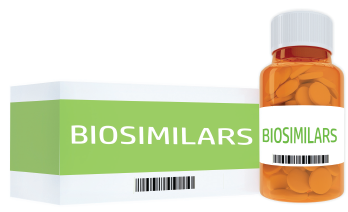
hafakot / shutterstock.com
CHICAGO—“We have got to get over this hump. We have got to try new stuff,” said Jacqueline M. Fritz, RN, MSN, CNS, to the audience gathered on the final day of the 2018 ACR/ARHP Annual Meeting, referring to the subject of biosimilars. Ms. Fritz, the owner and coordinator of education at the Medical Advancement Center in Cypress, Calif., where she teaches RN/BSN programs at various facilities, brought the topic of biosimilars to the Annual Meeting and moderated the session.
Ms. Fritz’s interest in the topic stems from her observation that many healthcare providers are uncomfortable prescribing biosimilars. After investigating, she realized many of these perceptions are unfounded.
Ms. Fritz then introduced Josephine Garnoc, MSN, RN, CRNI, OCN, director of nursing, Beaumont Hospital, Grosse Pointe, Mich.. Ms. Garnoc agreed with Ms. Fritz, explaining that in her clinical experience, many patients can’t afford the high cost of biologics, but they question the safety and efficacy of biosimilars.1 Healthcare providers are often unwilling or unable to reassure them that biosimilars are a reasonable option.
The U.S. Congress recognized that although only 1–2% of patients in the U.S. are on biologics, biologic use accounted for approximately 38% of healthcare costs.1 To address this, Congress passed the Biologics Price Competition and Innovation Act of 2009 (BPCI Act), which created an abbreviated approval pathway for biologic products that are demonstrated to be “highly similar” to or “interchangeable” with a U.S. Food and Drug Administration (FDA)-approved biological product.
Biosimilars are intended to decrease the cost of biologics and allow more patients access to these products. Several biosimilars have now been approved for use in the U.S., and they share a core name with the reference product. These include: filgrastim-sndz (Zarxio), biosimilar to filgrastim (Neupogen); infliximab-dyyb (Inflectra), biosimilar to infliximab (Remicade); infliximab-abda (Renflexis), biosimilar to infliximab (Remicade); etanercept-szzs (Erelzi), biosimilar to etanercept (Embrel); and adalimumab-atto (Amjevita), biosimilar to adalimumab (Humira).
Biosimilars have a primary amino acid sequence like the originator, and many are glycosylated. The FDA states, “a biosimilar is a biological product that is highly similar to the reference product notwithstanding minor differences in clinically inactive components.” In other words, no clinically meaningful difference between biosimilars and the original biologic can exist.
The FDA approves biosimilars through a stepwise process that evaluates the totality of evidence, biological structure, amino acid sequence, modifications, product stability/quality, binding affinities and mechanism of action. The FDA places an emphasis on comparable pharmacokinetic/pharmacodynamic properties to the reference product. It looks at the totality of this evidence before the biosimilar enters clinical trials.



